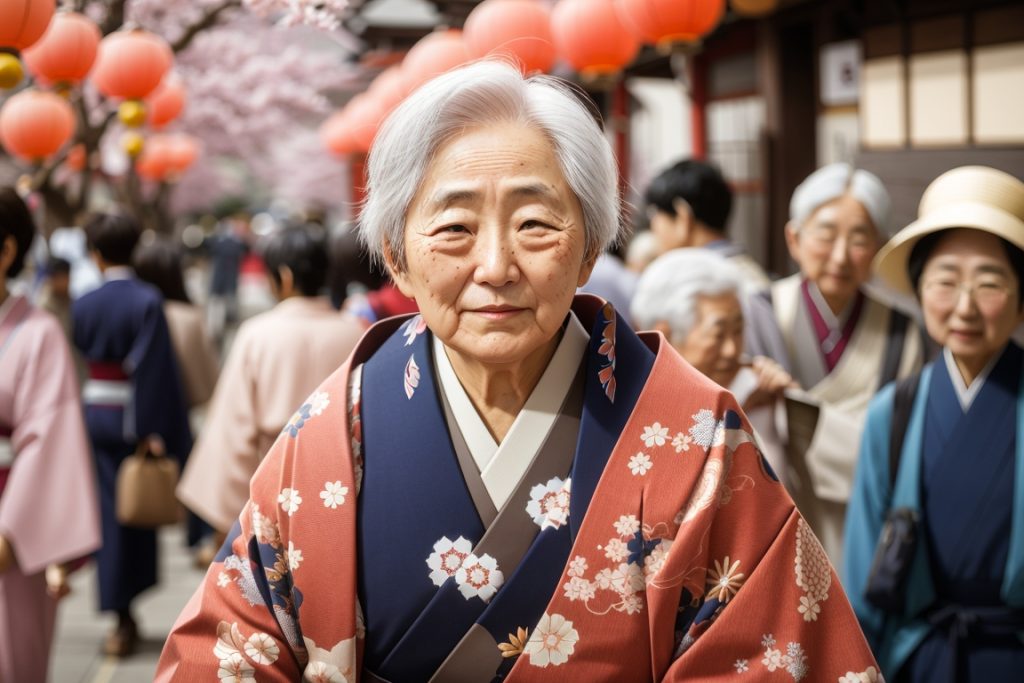The Secrets of Long Life Expectancy in Japan

Japan has long been admired for its high life expectancy, with its citizens consistently ranking among the longest-lived people in the world. This remarkable longevity has intrigued researchers and health enthusiasts worldwide, leading to a quest to uncover the secrets behind the Japanese people’s ability to live long, healthy lives. While there isn’t a single magic formula, several factors contribute to Japan’s exceptional life expectancy. In this article, we will explore some of the key secrets to the long life expectancy of the Japanese.
A Nutrient-Rich Diet
The Japanese diet, characterized by fresh, seasonal ingredients, plays a pivotal role in their longevity. A traditional Japanese diet is abundant in vegetables, fish, tofu, rice, and seaweed. Fish, in particular, is rich in omega-3 fatty acids, which are associated with heart health and reduced risk of chronic diseases. The emphasis on fresh and natural ingredients provides essential nutrients while minimizing processed and high-calorie foods, contributing to a lower risk of obesity and related health issues.
Portion Control
Portion control is a significant aspect of Japanese eating habits. The Japanese practice moderation when it comes to food consumption, often opting for smaller portion sizes. This not only aids in weight management but also promotes mindfulness in eating, helping individuals stop eating when they are satisfied, rather than overindulging.
Regular Physical Activity
Physical activity is another vital component of a healthy lifestyle in Japan. Walking and cycling are common modes of transportation, and many Japanese individuals engage in daily exercise routines such as tai chi, yoga, or traditional martial arts like judo or karate. Regular physical activity not only maintains physical fitness but also contributes to mental well-being.
Strong Social and Family Ties
Japanese society places great importance on social connections and family bonds. The sense of community and strong support networks are believed to contribute to emotional well-being and lower stress levels. Reduced stress, in turn, is associated with a decreased risk of chronic illnesses and a longer life.
Healthcare Access and Quality
Japan boasts a robust healthcare system with universal access to medical services. Regular health check-ups and early detection of diseases are common practices, allowing for timely interventions. The healthcare system’s efficiency and quality of care play a crucial role in maintaining the overall health of the population.
Cultural Practices
Cultural practices also play a part in Japanese longevity. The concept of “ikigai,” which roughly translates to “reason for being” or “purpose in life,” encourages individuals to stay engaged, motivated, and fulfilled throughout their lives. This sense of purpose and fulfillment can contribute to mental and emotional well-being, positively impacting overall health and longevity.
Embracing Aging
Japanese society has a different perspective on aging compared to many Western cultures. Older individuals are often respected and revered for their wisdom and experience. This positive attitude toward aging can reduce the stress associated with growing older and promote a healthier, more positive outlook on life.
Healthcare Innovation
Japan invests significantly in healthcare research and innovation. This commitment has led to advancements in medical technology, pharmaceuticals, and healthcare practices that benefit the population’s overall health and longevity.
The secrets of long life expectancy in Japan are a combination of dietary choices, lifestyle practices, healthcare access, and cultural values. While no single factor can explain their exceptional longevity, the holistic approach to health, which includes a balanced diet, regular physical activity, strong social bonds, and a positive attitude toward aging, all contribute to the Japanese people’s remarkable ability to live long and healthy lives. By adopting some of these practices and attitudes, individuals around the world can potentially increase their own chances of enjoying a longer, more fulfilling life.